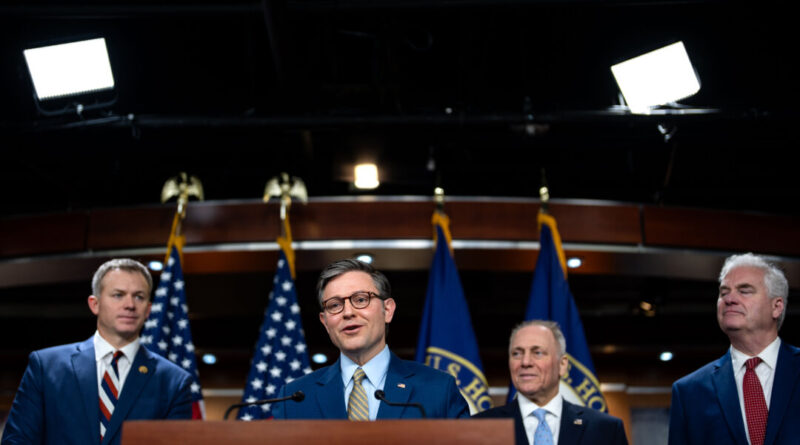Speaker Johnson Expresses Concerns Regarding Kids Online Safety Act
The legislation passed the Senate in July; however, fears regarding censorship have led to its delay in the House of Representatives.
WASHINGTON—On December 10, Speaker Mike Johnson (R-La.) expressed his dedication to enhancing online safety for minors utilizing the internet, while also exercising caution in advancing the Kids Online Safety Act to the House floor for a vote.
“We all, without exception, support the principle behind it, but it’s essential to approach this carefully,” Johnson stated to reporters during his weekly press conference.
“When it comes to regulating free speech, we must ensure that it does not extend too far or become overly broad.”
The Kids Online Safety Act (KOSA) proposes a series of regulations mandating social media and online gaming companies to implement safety measures for minors.
Among other stipulations, it requires that platforms automatically activate the strictest privacy settings for underage users. It also mandates restrictions on features that could increase their apps’ addictive qualities and prohibits conducting market research on children.
Sponsored by Sen. Marsha Blackburn (R-Tenn.) and Sen. Richard Blumenthal (D-Conn.), the legislation gained significant traction in the Senate, passing with a vote of 91–3.
However, the bill has encountered obstacles in the House due to apprehensions regarding censorship. Some GOP lawmakers argued that the legislation is too ambiguous and could potentially be leveraged to suppress conservative voices online.
At that time, Rep. Steve Scalise (R-La.) also cautioned against moving forward, emphasizing, “Just because a bill has a nice name, that’s great, but ultimately the policy is what matters.”
Significantly, the bill has also faced opposition from a coalition of progressive groups, including the American Civil Liberties Union, Bisexual Resource Center, and LGBT Tech.
They raised concerns that the legislation would provide the Federal Trade Commission with “extraordinary powers to arbitrarily restrict access to critical information,” including “resources about reproductive healthcare, LGBTQ+ content, and information pertaining to the history of marginalized communities.”
Both progressive and conservative opponents of the bill share concerns about its “duty of care” clause, which obligates platforms to “exercise reasonable care” to protect minors from harmful materials.
Recently, Linda Yaccarino, CEO of X, stated that the company collaborated with Blackburn and Blumenthal to resolve some of the bill’s contentious aspects in hopes of facilitating its passage in the House. Elon Musk, the owner of X, is also a proponent of the legislation.
Additionally, on Tuesday, Blackburn and Rep. Gus Bilirakis (R-Fla.) were joined by parents and advocates at a rally on Capitol Hill, urging Congress to enact KOSA before the end of the year.
“Every day that passes without this bill, more children are exposed to dangers in the digital landscape,” Blackburn declared. “It is time to get this to the president’s desk.”
Rally participants gathered next to a pile of wrapped Christmas gifts, symbolizing the children whose lives have been impacted by harmful online encounters and who will be unable to open presents this year. Parents who lost their children spoke emotionally about the bullying, anorexia, and sexual abuse their children endured.
Shama Reed recounted a terrifying experience involving her daughter Shamail, who was lured away by a 27-year-old online predator masquerading as a teenage boy.
Shamail was missing for 30 days and was sex trafficked until her mother managed to find her through her Facebook account.
“It was a nightmare … I had to become a hacker, detective, everything to locate her,” Reed told reporters.
Erin Popolo shared her daughter’s tragic story, stating that Emily had endured severe bullying on Snapchat, which ultimately led to her taking her own life.
“The torment, unfortunately, did not stop with her death,” Popolo recounted. “During her livestreamed funeral, bullies hijacked the service to continue their attacks, while our entire family watched in agony.”




